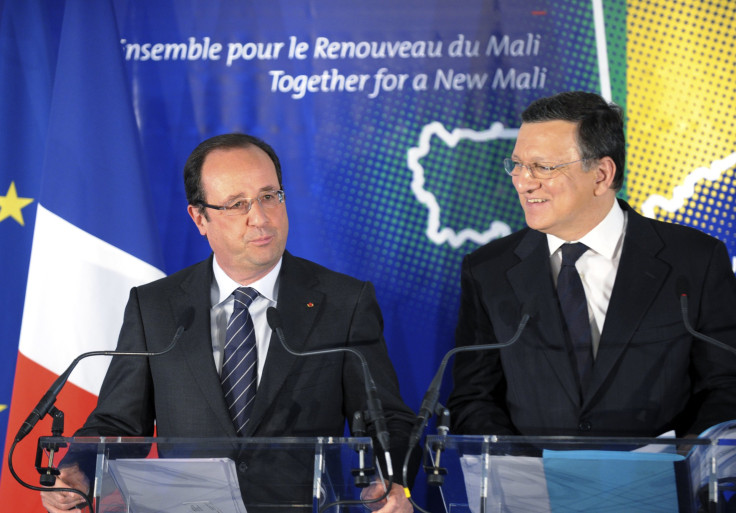The Latest European Row: France And EU President Barroso At Odds Over "Cultural Exception"

The word “reactionary” does not usually cause political earthquakes. It even sounds a little antiquated, like something out of the 1930s in the Soviet Union. But on Monday in France, it was precisely that little word, pronounced during an interview by José Manuel Barroso, the European Commission president, that wreaked havoc in the country’s media.
The head of the executive arm of the European Union was talking about France’s “cultural exception” while being interviewed by the International Herald Tribune about the G8 summit meeting under way in Northern Ireland. Barroso was reacting to France’s push to renegotiate the terms of a proposed trade accord between the U.S. and Europe. Last Friday, France succeeded in limiting the scope of the treaty by arguing that Europe’s movie and television industries should be excluded, to protect “l’exception culturelle.”
“It’s part of this anti-globalization agenda that I consider completely reactionary,” said Barroso, without specifically naming the French government. “Some say they belong to the left, but in fact they are culturally extremely reactionary.” (French President François Hollande is a Socialist.)
The “cultural exception” is an omnipresent notion in Europe, but particularly in France. There are a number of reasons the country is so attached to this principle. At a time when most movies and television shows around the world are American, France tries to preserve a niche that might disappear one day. The French language is far less prominent in the world than it used to be and there is a growing indifference to European cinema. "The Artist," which won five Academy Awards in 2012, might be seen as a rare exception. But then again, the movie was totally silent -- a cultural exception all right, in the 21st century.
Although the idea of “cultural exception” is supported by eminent cinematographers like the Dardenne brothers and Pedro Almodovar -- and even the most famous director of American blockbusters, Steven Spielberg -- Barroso said Europe must instead learn to adjust to globalization.
Hollande said that he could not believe Barroso “would declare such things about France.”
Numerous French politicians denounced the words used by the president of the European Commission, saying that they were “unacceptable,” “appalling and shocking,” and even asking for Barroso’s resignation.
But the strongest response might well be the one from Marine Le Pen. The leader of the French National Front has always shown her opposition to the European Union. It’s an article of faith among the European far right that the EU is a bureaucratic monster, quashing the local cultural identities that nationalist parties strive to defend. Le Pen is no exception.
“The European Commission president’s insults towards France, qualified as reactionary by José Manuel Barroso, proves the violence of the European system imposed on the French and European peoples against their will,” she said.
It’s unlikely that Barroso (who, for the record, is Portuguese) will have to resign over the affair, or that the passionate French defense of the exception culturelle will stop anytime soon. But the whole brouhaha proved, once again, an unpleasant truth about the current state of the European Union: These days, even its staunchest members are quick to get upset over pretty much anything coming out of the EU’s headquarters.
© Copyright IBTimes 2025. All rights reserved.





















